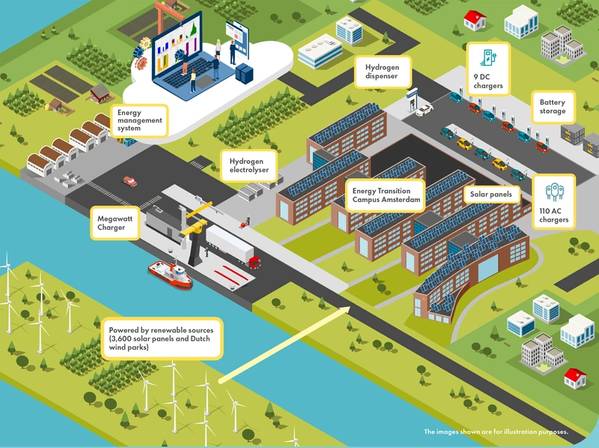
Shell inaugurated on June 17, 2024, its first self-developed megawatt charger for dual use by both electric trucks and shipping vessels at the Energy Transition Campus Amsterdam (ETCA). The capacity of the megawatt charger corresponds to about three 350 kW, regular fast chargers that trucks can currently use to charge.
“In addition to our investments in biofuels and LNG, we also invest in electric mobility," said Hilmar van den Dool, General Manager eMobility at Shell. "There are not that many electric trucks and vessels yet, so with this we’re investing ahead of the market that is growing quickly. It is in line with our ambition to provide more and cleaner energy solutions.”
The megawatt charger is connected to ETCA’s own microgrid. This smart grid enables integration between energy supply, energy storage, and energy demand. The ETCA microgrid includes 3,600 rooftop solar panels, stationary battery storage, 119 EV chargers for cars1, a hydrogen electrolyzer and other research equipment.
The Megawatt Charging System (MCS) is equipped with two separate charging arms. One rotatable arm is dedicated to electric vessels, the other arm serves heavy-duty electric trucks and buses.



